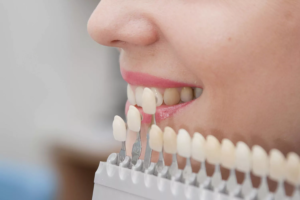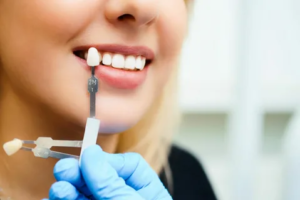In the dynamic realm of modern dentistry, dental crowns have emerged as a pivotal solution for restoring the functionality and aesthetics of damaged teeth. As a corporate entity committed to advancing dental health, we understand the importance of ensuring that your investment in dental crowns yields enduring benefits. This article delves into the essential aspects of caring for dental crowns, providing you with expert insights to maintain their integrity and enhance their longevity.

Understanding Dental Crowns
Dental crowns, often referred to as “caps,” are custom-made restorations designed to encase the entire visible portion of a tooth. They serve multiple purposes, including protecting weakened teeth, restoring broken teeth, and improving the overall appearance of discolored or misshapen teeth. The materials used for dental crowns vary, with porcelain, ceramic, metal alloys, and resin being common choices. Each material offers unique benefits, but the longevity of your crown largely depends on proper maintenance.
The Imperative of Proper Care
Investing in dental crowns is not merely a cosmetic decision; it is a commitment to your oral health. Therefore, understanding the nuances of caring for these restorations is crucial. A well-maintained dental crown can last between 5 to 15 years, depending on various factors, including oral hygiene practices, lifestyle choices, and regular dental check-ups. Below, we outline the key strategies for maintaining your dental crowns and ensuring they serve you well for years to come.
Daily Oral Hygiene: The Foundation of Crown Longevity
A cornerstone of dental crown care is maintaining impeccable oral hygiene. Brushing and flossing are non-negotiable elements of daily dental care. Use a soft-bristled toothbrush and fluoride toothpaste to gently clean your teeth, paying special attention to the crown area. Flossing should be done with care to avoid dislodging the crown or damaging the gum tissue. Additionally, consider using an antibacterial mouthwash to reduce the risk of infection and plaque buildup around the crown.

Mindful Eating Habits: Protecting Your Crowns
While dental crowns are designed to withstand the forces of chewing, certain dietary choices can compromise their integrity. Avoiding hard or sticky foods, such as ice, nuts, and caramel, is advisable as these can cause fractures or dislodge the crown. Additionally, be mindful of acidic foods and beverages that can erode the crown’s material over time. A balanced diet, rich in essential nutrients, not only supports overall oral health but also contributes to the longevity of your crowns.
Regular Dental Check-Ups: The Professional Edge
Routine dental visits are indispensable for the maintenance of dental crowns. These check-ups enable your dentist to assess the condition of your crowns and detect any potential issues early. During these visits, your dentist may recommend professional cleanings to remove plaque and tartar buildup, which are not fully addressed by regular brushing and flossing. Furthermore, your dentist can provide personalized advice on maintaining your crowns based on your specific oral health needs.
Addressing Bruxism: Protecting Your Investment
Bruxism, commonly known as teeth grinding, can pose a significant threat to dental crowns. The excessive pressure exerted on the crowns during grinding can lead to cracks or fractures. If you suspect you may be grinding your teeth, it is imperative to consult your dentist. They may recommend a custom-made night guard to protect your crowns and natural teeth from the damaging effects of bruxism.
The Role of Fluoride Treatments
Fluoride treatments can play a pivotal role in maintaining the health of the teeth supporting your crowns. These treatments strengthen the enamel, making it more resistant to decay. During your routine dental visits, inquire about the availability of fluoride treatments to enhance the longevity of both your crowns and natural teeth.
Emergency Care: Prompt Action for Crown Issues
Despite the best care, issues with dental crowns can sometimes arise. Whether it’s a loose crown or discomfort, it is essential to address these problems promptly. Delaying treatment can exacerbate the situation, potentially leading to more extensive and costly repairs. Keep in mind that dental emergencies are best managed by professional dental care providers, who can accurately diagnose and treat the issue.
Conclusion
At the intersection of aesthetics and functionality, dental crowns represent a significant investment in your oral health. By adhering to a robust oral hygiene routine, being mindful of your dietary choices, and scheduling regular dental visits, you can ensure that your dental crowns provide long-lasting results. Our commitment to excellence in dental care extends to providing you with the knowledge and tools necessary to maintain your crowns and overall oral health. Remember, your smile is a valuable asset—invest in it wisely.
For more information on dental crowns and other dental services, we invite you to explore our comprehensive content. Our team is dedicated to delivering top-tier dental solutions, backed by cutting-edge technology and a patient-centric approach. Whether you’re seeking preventive care or advanced restorative procedures, we are here to support your journey to optimal dental health.